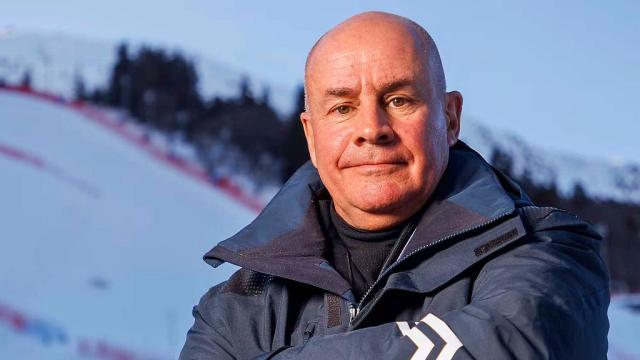
A Surprise Contender
Eliasch's candidacy emerged shortly after he became an IOC member, a prerequisite for vying to replace current president Thomas Bach. His main competition includes well-known sports figures such as World Athletics president Sebastian Coe. While Eliasch may lack the broader public profile of some rivals, he brings extensive leadership experience from both the corporate world and environmental advocacy.
A Businessman With a Green Background
The 62-year-old first drew attention in environmental circles two decades ago, when he purchased 1,600 square kilometers of Amazon rainforest to protect it from deforestation. In 2006, he co-founded Cool Earth, a charity that channels funds to rainforest communities so they can resist logging pressures. His philanthropic track record also includes advisory work for both Conservative and Labour governments in the UK, highlighting a pragmatic rather than partisan approach.
"Protecting biodiversity is very close to my heart," Eliasch says, pointing to his long-time involvement in climate and forest conservation efforts. His background includes a stint as CEO of sports equipment company Head, and roles such as chair of the technology and innovation advisory group for the UK's Net Zero Review in 2021.
Tackling the IOC's Climate Challenge
In an interview with Euronews Green, Eliasch acknowledges the vast climate challenge facing the Olympic Movement. With extreme weather events intensifying worldwide—threatening everything from infrastructure to athlete safety—he says the IOC must step up.
"For the Olympics, this [the climate crisis] is a big topic because it is incumbent on mankind to address this. And we're so much bigger than just sport," he explains.
One of his flagship proposals is creating a "Forest City" for each Olympic host city—protecting a corresponding tract of rainforest to balance the environmental impact. He also mentions using artificial intelligence to optimize train and flight schedules, managing traffic flows more efficiently, and carefully planning venue construction. For Eliasch, "there is no magic wand" that fixes everything at once; rather, a series of smaller, strategic actions are needed to cut the Games' carbon footprint.
Balancing Green Ambitions and Athlete Needs
Though the Paris 2024 Games significantly reduced emissions compared to past host cities by using existing infrastructure, some sustainability measures—like using cardboard beds and limiting air conditioning—sparked debate. Eliasch stresses the importance of finding a middle ground that reduces emissions without jeopardizing athlete comfort.
He notes that seeing first-hand the effects of warming winters on alpine sports has only reinforced his determination. Since taking charge of FIS, he has observed how lower-altitude ski resorts increasingly struggle with insufficient snowfall and rising temperatures.
Hosting the Games in Hotter Regions
Eliasch envisions future Olympic Summer Games in Africa, the Middle East, and India—regions he references on his campaign cover. "I had this to show that everything is possible," he says, explaining that global representation must guide Olympic decision-making.
Yet hosting the Games in hotter climates raises difficult questions. Parts of Europe have experienced record heat waves that affect both athlete performance and public safety, and some cities have confronted catastrophic wildfires. How those challenges might be managed in more climate-stressed regions remains a central dilemma.
From Political Neutrality to Climate Advocacy
The IOC maintains a principle of political neutrality, which can create tension when pressing governments and corporations for climate action. Eliasch believes that climate intervention rises above politics: "To me, climate action is not political," he says, highlighting his willingness to work with different UK governments in the past, regardless of their party affiliations.
He supports scaling up the IOC's role at annual UN climate summits, leveraging its global influence to foster more robust climate commitments. "We're no longer in the domain of neutrality," he says, calling for science-led decision-making rather than short-term political considerations.
Controversies, Criticism, and Responsibility
Eliasch's billionaire status and connections have drawn scrutiny. He has declined to comment publicly about whether he owns a private jet, a point of contention for some climate campaigners. Instead, he underscores that everyone bears some responsibility for lowering emissions, regardless of socioeconomic status.
Asked whether the overconsumption of a small fraction of the population outweighs concerns about human population growth, Eliasch replies: "Everybody…has a responsibility to make sure that we minimize our carbon footprint and that we take action. And the more resources you have, the more you can do."
Some of his proposed climate solutions, like urging Olympic spectators to travel by sustainable aviation fuels, or using solar panels in space, are considered ambitious or speculative. Yet Eliasch maintains that exploring innovative technologies should be part of the IOC's strategy.
Eyeing the Presidency
If elected, Eliasch would serve at least an eight-year term as IOC president, shaping the future of the Olympic Games through policy, partnerships, and global outreach. Critics question whether his brand of environmentalism can translate into practical results, but he says the search for perfect solutions should not impede progress.
"It's not a popularity contest," Eliasch states. "We have to vote for the right person with the right experience who can deliver…In a healthy democracy, you always have different opinions about how things can be done. Always let the best ideas win."
With the secret-ballot vote looming in Greece, Eliasch is betting that his background—spanning corporate leadership, philanthropic endeavors, and environmental advocacy—will resonate with IOC members seeking a president capable of tackling the climate crisis head-on. Whether the Olympic body's stakeholders share that vision remains to be seen.